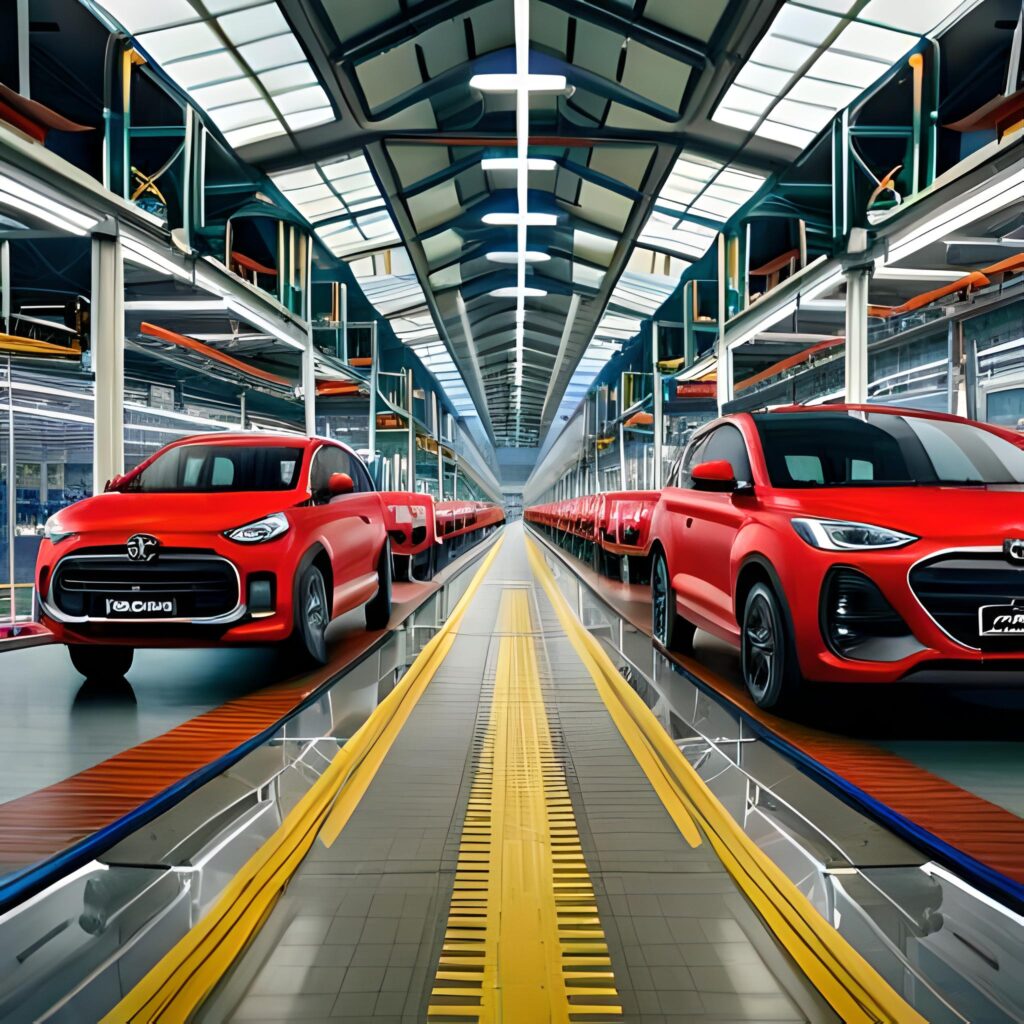
Introduction
Car Companies in India, a country known for its diverse culture, rich heritage, and bustling population, has also emerged as a prominent player in the global automotive industry. Over the years, several car companies have established their presence in the Indian market, catering to the needs and aspirations of millions of Indian consumers. In this article, we will explore the dynamic landscape of car companies in India, examining their contributions to the automotive sector and the factors that drive their success.
1. Overview of the Indian Automotive Industry
The Indian automotive industry has witnessed significant growth and transformation in recent decades. It is one of the largest contributors to the country’s manufacturing sector and GDP. With a vast consumer base and increasing disposable incomes, the demand for automobiles, particularly cars, has been consistently rising. The industry encompasses various segments, including passenger vehicles, commercial vehicles, two-wheelers, and three-wheelers.
2. Major Car Companies in India
2.1 Tata Motors
Tata Motors, an Indian multinational automotive manufacturing company, holds a prominent position in the Indian car market. It offers a diverse range of vehicles, including compact cars, sedans, SUVs, and electric cars. Tata Motors’ commitment to innovation, quality, and affordability has earned it a loyal customer base in India and abroad.
2.2 Maruti Suzuki
Maruti Suzuki, a subsidiary of Suzuki Motor Corporation, is the largest car manufacturer in India. It has revolutionized the Indian automotive landscape with its affordable and fuel-efficient cars. Maruti Suzuki’s wide distribution network, extensive after-sales service, and customer-centric approach have made it a household name in India.
2.3 Mahindra & Mahindra
Mahindra & Mahindra, an Indian multinational conglomerate, is renowned for its rugged and utility vehicles. The company has a strong presence in the SUV and commercial vehicle segments. Mahindra & Mahindra’s focus on innovation, reliability, and off-road capabilities has made it a preferred choice for adventure enthusiasts and businesses alike.
2.4 Hyundai Motor India Limited
Hyundai Motor India Limited, a subsidiary of Hyundai Motor Company, is known for its feature-rich and stylish cars. It has consistently introduced new models and variants tailored to the Indian market’s preferences. Hyundai’s emphasis on technology, design, and customer satisfaction has helped it establish a strong foothold in the Indian car industry.
2.5 Honda Cars India Limited
Honda Cars India Limited, a subsidiary of Honda Motor Company, specializes in manufacturing premium cars and compact sedans. The company is renowned for its refined engines, advanced safety features, and comfortable interiors. Honda’s commitment to quality and performance has made it a trusted brand among Indian car buyers.
2.6 Ford India Private Limited
Ford India Private Limited, a subsidiary of Ford Motor Company, is known for its robust and stylish vehicles. The company offers a diverse range of cars, including compact hatchbacks, sedans, and SUVs. Ford’s focus on performance, safety, and technology has resonated well with Indian consumers, contributing to its growth in the market.
2.7 Toyota Kirloskar Motor
Toyota Kirloskar Motor, a joint venture between Toyota Motor Corporation and the Kirloskar Group, is renowned for its reliability and durability. The company has a strong presence in the mid-size sedan and SUV segments. Toyota’s commitment to quality, innovation, and eco-friendly technologies has made it a preferred choice among Indian car buyers.
2.8 Volkswagen India Private Limited
Volkswagen India Private Limited, a subsidiary of Volkswagen AG, is known for its German engineering and premium cars. The company offers a wide range of vehicles, including hatchbacks, sedans, and SUVs. Volkswagen’s focus on performance, safety, and cutting-edge technology has appealed to discerning Indian customers.
2.9 Renault India Private Limited
Renault India Private Limited, a subsidiary of Renault S.A., has made a significant impact on the Indian car market with its stylish and feature-packed cars. The company’s emphasis on design, performance, and affordability has helped it gain traction among Indian consumers.
2.10 Nissan Motor India Private Limited
Nissan Motor India Private Limited, a subsidiary of Nissan Motor Company, has introduced several innovative and value-driven cars in the Indian market. The company’s commitment to technology, safety, and fuel efficiency has positioned it as a formidable player in the Indian car industry.
3. Growth Factors for Car Companies in India
3.1 Rising Disposable Income and Middle-Class Aspirations
The steady growth of the Indian economy, coupled with increasing disposable incomes, has fueled the demand for cars. As more individuals join the middle class, the aspiration to own a car has become more prevalent. Car companies in India have capitalized on this trend by offering affordable and value-for-money vehicles.
3.2 Favorable Government Policies and Incentives
The Indian government has implemented various policies and incentives to promote the automotive industry’s growth. Initiatives such as the “Make in India” campaign, tax benefits, and subsidies for electric vehicles have encouraged car companies to invest in manufacturing facilities and develop technologically advanced vehicles.
3.3 Increasing Urbanization and Infrastructure Development
Rapid urbanization and infrastructure development in India have created a conducive environment for car ownership. Improved road networks, better connectivity, and the development of smart cities have expanded the market for car companies. Urban dwellers seek convenient and comfortable transportation options, driving the demand for cars.
3.4 Technological Advancements and Innovation
Car companies in India are leveraging technological advancements to enhance the driving experience and meet evolving customer expectations. Features such as touchscreen infotainment systems, advanced safety features, connected car technology, and electric drivetrains are gaining popularity among Indian consumers.
3.5 Shift towards Electric Vehicles
With growing concerns about pollution and the need for sustainable transportation, there has been a significant shift towards electric vehicles (EVs) in India. Car companies are investing in EV technology and launching electric models to cater to eco-conscious consumers. Government incentives and charging infrastructure development further support this transition.
4. Challenges and Opportunities
4.1 Intense Competition and Price Sensitivity
The Indian car market is highly competitive, with numerous players vying for market share. Car companies face intense competition, which often leads to price sensitivity among consumers. To stay competitive, companies must continuously innovate, offer value-for-money propositions, and optimize their cost structures.
4.2 Changing Customer Preferences
Customer preferences and buying behavior in the Indian car market are evolving rapidly. Factors such as design, fuel efficiency, safety features, and connectivity options influence purchase decisions. Car companies need to anticipate and adapt to these changing preferences to stay relevant and meet customer expectations.
4.3 Environmental Concerns and Sustainability
As environmental consciousness grows, car companies face the challenge of balancing performance and sustainability. Stricter emission norms and the need for greener alternatives necessitate the development of eco-friendly vehicles. Car companies are investing in hybrid and electric technologies to align with sustainability goals.
4.4 Road Safety and Regulatory Compliance
Ensuring road safety and complying with regulatory requirements are crucial for car companies in India. Stringent safety standards, crash test norms, and emission regulations demand continuous improvement in vehicle design and engineering. Adhering to these standards is not only a legal obligation but also enhances consumer trust and brand reputation.
4.5 Export Potential and Global Market Penetration
Indian car companies have significant export potential, with demand for Indian-made vehicles in international markets. To leverage this opportunity, companies must focus on building quality products, expanding their distribution networks, and enhancing their brand image globally. Exploring strategic partnerships and collaborations can further facilitate market penetration.
5. Conclusion
Car companies in India play a vital role in driving the country’s automotive industry forward. Through innovation, affordability, and a deep understanding of customer needs, these companies have successfully captured the Indian market. As India progresses towards a sustainable and technologically advanced future, car companies must navigate the challenges and seize the opportunities that lie ahead.
FAQs
- What are the top-selling car companies in India?
- Some of the top-selling car companies in India are Maruti Suzuki, Hyundai, Tata Motors, and Mahindra & Mahindra.
- Are electric cars gaining popularity in India?
- Yes, electric cars are gaining popularity in India due to their environmental benefits and government incentives.
- Which car company offers the best after-sales service in India?
- Maruti Suzuki is known for its extensive after-sales service network and customer support in India.
- Are Indian car companies exporting vehicles to other countries?
- Yes, many Indian car companies are exporting vehicles to various countries, showcasing the quality and competitiveness of Indian manufacturing.
- What are the future growth prospects for the Indian automotive industry?
- The Indian automotive industry is expected to witness further growth with the rising middle-class population, infrastructure development, and the shift towards electric and sustainable vehicles.
